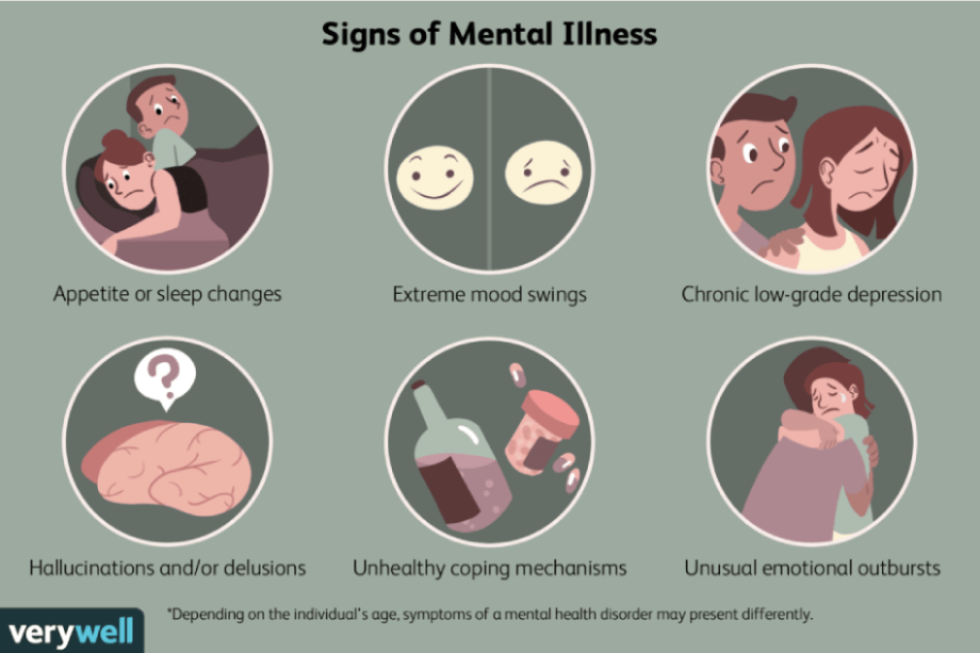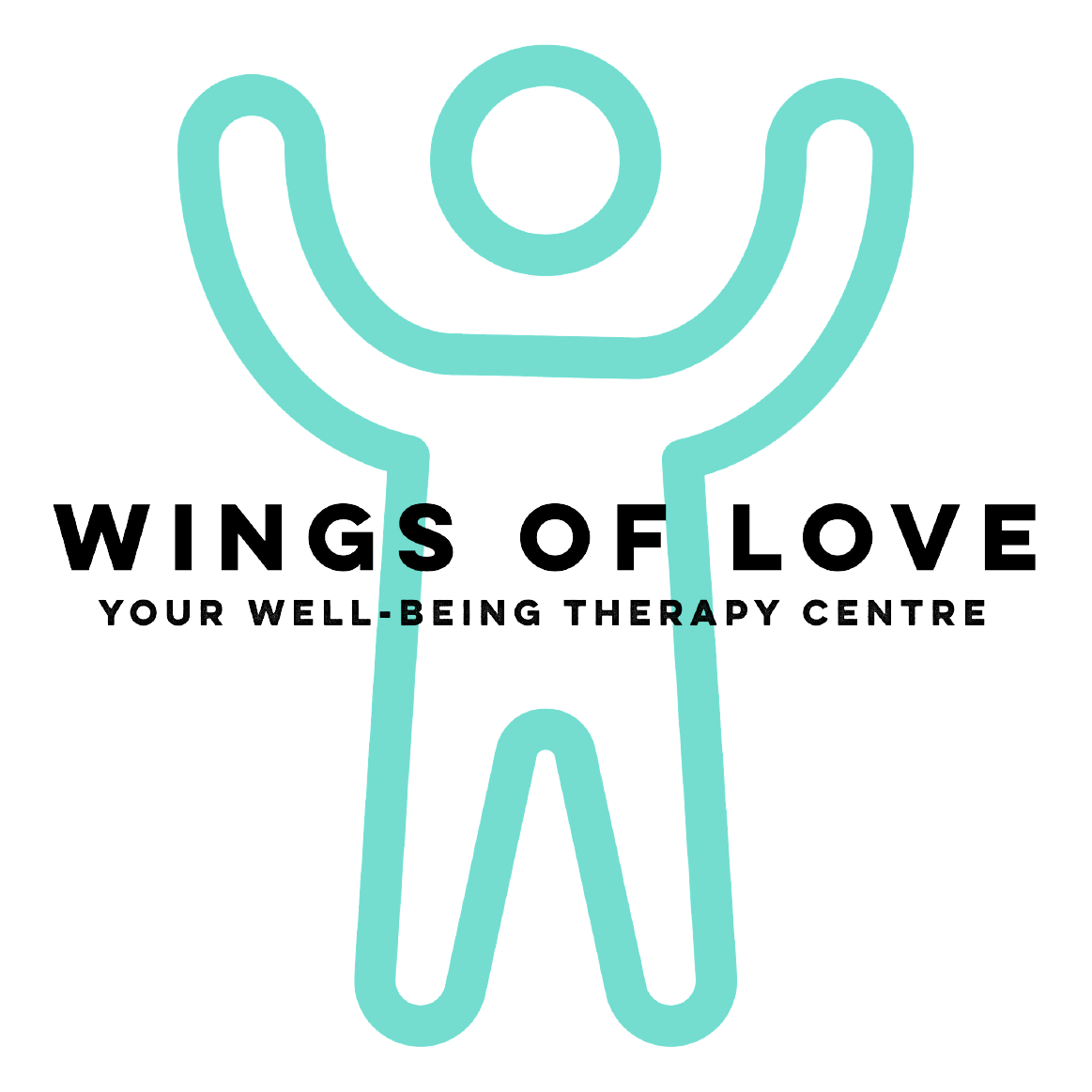
12 Sep Unlocking the Power of Therapy as a Proactive Approach to Mental Wellness

Unlocking the Power of Therapy as a Proactive Approach to Mental Wellness.
12 Sep 2023
By Wings of Love
In a world where we readily seek medical help for physical ailments, it is surprising that many of us still harbour reservations about seeking therapy or counselling for our mental well-being. Society has, for far too long, associated therapy with individuals grappling with severe mental health issues like depression, stress, anxiety, or insomnia. However, the truth is, therapy has a much broader spectrum of benefits than what meets the eye.
It is a well-known fact that the accumulation of unresolved issues can manifest as depression, stress, anxiety, or insomnia. These conditions often serve as alarms, signalling that something in our lives needs attention and care. But just as we do not usually wait until we are bedridden to exercise and maintain our physical health, we should never wait until we are in crisis mode to consider therapy for our mental well-being.
Therapy as a Wellness Too
Consider this: you do not tell a physically fit and healthy person not to exercise because they are already healthy. In the same vein, even mentally healthy individuals can benefit from regular “mental exercise” in the form of therapy. Just as we engage in physical exercise to stay fit, therapy can help maintain and even enhance our mental wellness.
One of the most prevalent misconceptions about therapy is that it is solely reserved for those with diagnosed mental health disorders. This misguided belief often deters people from seeking the support they might need. The fear of being judged by society as mentally ill further compounds this issue. In reality, this perception could not be more wrong.
Therapy is not just about addressing mental illness; it is a tool for personal development. Yuko Nippoda, a psychotherapist and spokesperson for the UK Council for Psychotherapy (UKCP), highlights that therapy helps individuals gain insight, raise self-awareness, and change perspectives. It is a journey towards becoming the best version of oneself.
While many may consider therapy during times of crisis or stress, there is no defined threshold for needing therapy. Therapists can assist in making decisions about work, relationships, or any other common life issues. Sometimes, you might feel the need for therapy without a clear reason, and that is entirely okay. Research consistently shows that early intervention can prevent or mitigate future mental health problems.
Recognizing When It Is Time for Therapy
Seeking therapy is not solely reserved for those facing severe mental health challenges. Therapy can be a powerful tool for managing various aspects of life and enhancing your overall well-being. Here are some signs that it might be time to consider therapy.
Super Overwhelmed : Overwhelming stress, whether caused by an excessive workload or other factors, can negatively impact your health. Long-term stress can affect concentration, lead to fatigue, and even cause memory issues. Therapy can help you address stress, anxiety, trauma, and relationship issues.

Feeling overwhelmed by your work-life balance is something most people struggle with at some point in their lives.
Source: Bernard Marr
Sleeping Too Much or Too Little :Sleep and mental health are intertwined. Mental health problems can disrupt sleep, and poor sleep can worsen mental health. Therapy can assist in managing mental health symptoms affecting your sleep and improving overall sleep hygiene.
Social Withdrawal : If you find yourself distancing from friends, isolating, or struggling in relationships, there might be underlying causes like stress or anxiety. Social isolation can lead to health problems, making therapy essential to address mental health challenges and social anxiety.
Intrusive Thoughts : Intrusive thoughts that dominate your daily life can be distressing. Therapy can provide strategies to manage these thoughts and regain control, particularly for those with conditions like PTSD or OCD.
Emotion Control : Difficulty controlling emotions is a significant symptom in mood and anxiety disorders. Therapy, particularly Cognitive Behavioural Therapy (CBT), can help you learn to manage your emotions effectively.
Loss of Interest : A loss of interest in hobbies and activities is a common sign of depression. Therapy can effectively treat depression and restore your enjoyment in life.
Hopelessness : Feeling hopeless is a prevalent symptom of depression. Untreated depression can lead to severe consequences, making it crucial to seek care promptly.
Work Problems : Workplace challenges can contribute to mental health issues. Therapy can address work-related stress, anxiety, and depression, improving your overall job satisfaction.
Appetite Changes : Changes in appetite are common in mental health conditions. Therapy can help regulate appetite and address potential eating disorders.
Recent Trauma : Traumatic events can trigger Post-Traumatic Stress Disorder (PTSD). Trauma-Focused Cognitive Behavioral Therapy can effectively treat both acute and chronic PTSD.
Grief : If grief is interfering with daily life and lasting too long, therapy can help you process and manage it.
Substance Use : If you are using substances to cope with mental health issues or stress, therapy can address these concerns and provide healthier coping mechanisms.

Having unhealthy coping habits, such as using drugs and alcohol to deal with stress is one of the signs of mental illness.
Source: VeryWell Mind
Engaging in Secretive Behaviour : Consistently hiding actions or thoughts from others can signal deeper emotional issues. Therapy offers a safe space to discuss these concerns without judgement.
Major Life Changes : When facing significant life transitions, therapy can provide support and help you develop new skills and perspectives to navigate these changes effectively.
Therapy as a Preventive Approach
Traditionally, therapy has been viewed as a resource primarily for individuals grappling with existing mental health issues. However, a shift in perspective acknowledges that therapy can be an invaluable tool for preventing these issues from developing or worsening. Below are some ways on how therapy serves as a form of prevention.
Early Intervention
While many may consider therapy during times of crisis or stress, there is no defined threshold for needing therapy. Therapists can assist in making decisions about work, relationships, or any other common life issues. Sometimes, you might feel the need for therapy without a clear reason, and that is entirely okay. Research consistently shows that early intervention can prevent or mitigate future mental health problems.
Enhancing Self-Awareness
Therapy encourages individuals to explore their thoughts, feelings, and behaviours in depth. This heightened self-awareness can help people recognize patterns of thinking and behaviour that may contribute to mental health challenges. Armed with this awareness, individuals can proactively work to modify or address these patterns before they escalate into more significant issues.
Managing Stress
Stress is a common factor in the development of mental health problems. Therapy equips individuals with stress management techniques, helping them cope with life’s inevitable challenges more effectively. By addressing stress early, therapy can prevent it from snowballing into chronic anxiety or depression.
Building Resilience
Therapy fosters resilience, which is the ability to bounce back from adversity. Through therapy, individuals can develop the emotional tools needed to navigate difficult situations. This resilience acts as a protective factor against the development of mental health disorders.
Healthy Emotional Expression
Often, individuals struggle with expressing their emotions in a healthy and constructive manner. Therapy provides a safe space to explore and express emotions without judgement. Learning to communicate and process emotions effectively can prevent emotional bottlenecks that might contribute to mental health issues.

Safe space in therapy is an environment where individuals feel secure, understood, and free to express themselves without fear of judgement or repercussion.
Source: Grouport Therapy
Addressing Past Trauma
Past traumas, even if seemingly resolved, can resurface and affect mental health later in life. Therapy can help individuals address and heal from past traumas, preventing them from festering and leading to more severe psychological issues down the road.
Improving Coping Skills
Life is full of challenges, and individuals need effective coping skills to navigate them. Therapy equips individuals with a toolbox of coping strategies that can be applied proactively when facing stressors, helping to prevent these stressors from spiralling into mental health problems.
Promoting Self-Acceptance
Many mental health issues are rooted in self-doubt and self-criticism. Therapy can foster self-acceptance and self-compassion, reducing the likelihood of self-blame and negative self-perception that can contribute to mental health problems.
The Bottom Line
Stigma remains a significant barrier to seeking therapy. People often believe they should handle their issues independently or expect themselves to simply “snap out” of emotional difficulties. The fear of judgement from friends, family, or colleagues further deters individuals from seeking help. Therapists and mental health professionals must actively work to destigmatize therapy. It’s crucial to communicate that therapy isn’t solely for individuals with mental health problems but also serves broader purposes in personal development and emotional well-being.
In essence, therapy as prevention is about taking a proactive approach to mental health. It’s akin to maintaining a healthy lifestyle to prevent physical illnesses. By addressing emotional and psychological challenges early, therapy can equip individuals with the tools and resilience needed to lead emotionally fulfilling lives. It is not solely a resource for those already struggling; it is a means of ensuring a stronger foundation for everyone’s emotional well-being.
Remember, seeking therapy is a sign of strength and self-care, and it is an investment in your long-term mental health and overall quality of life. Whether you are facing challenges or simply want to enhance your emotional well-being, therapy has much to offer as a preventive measure.



